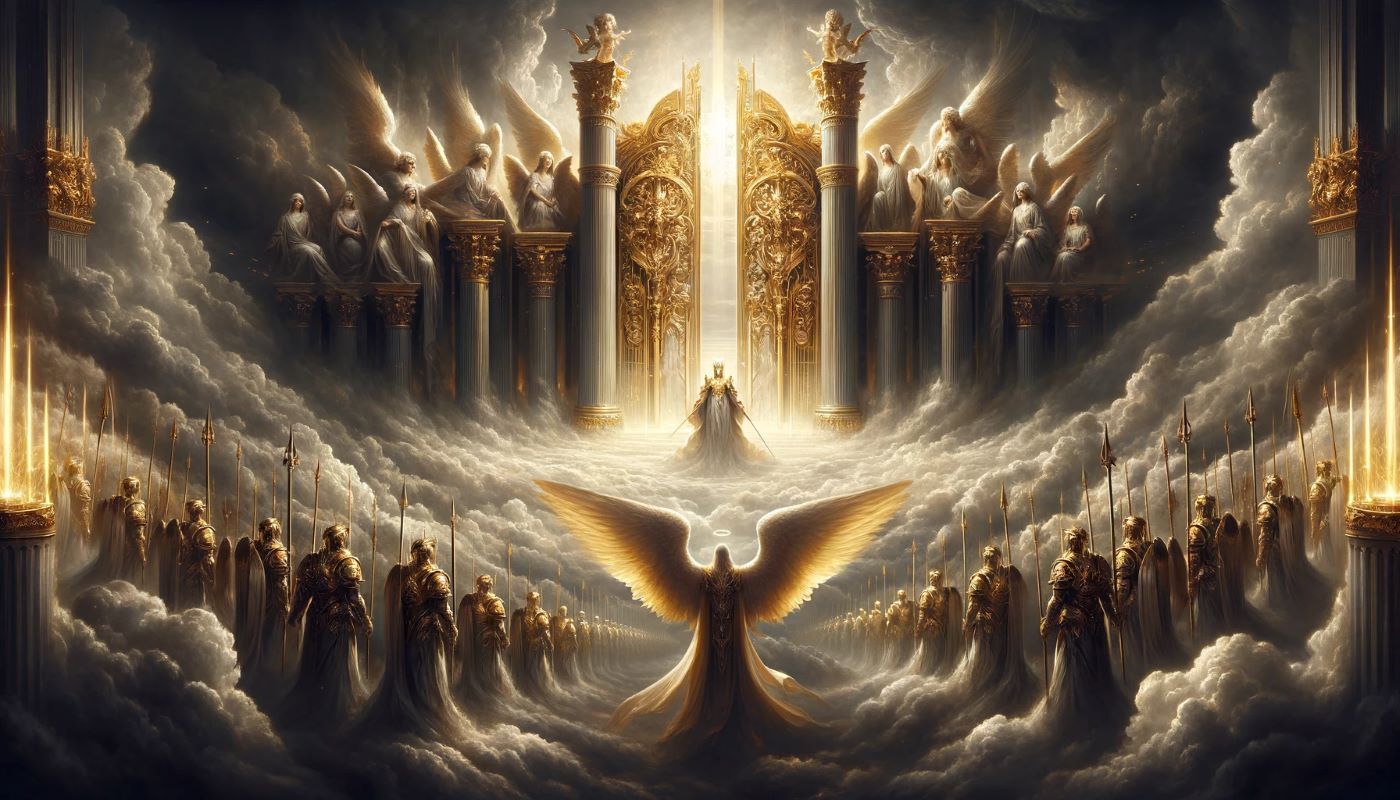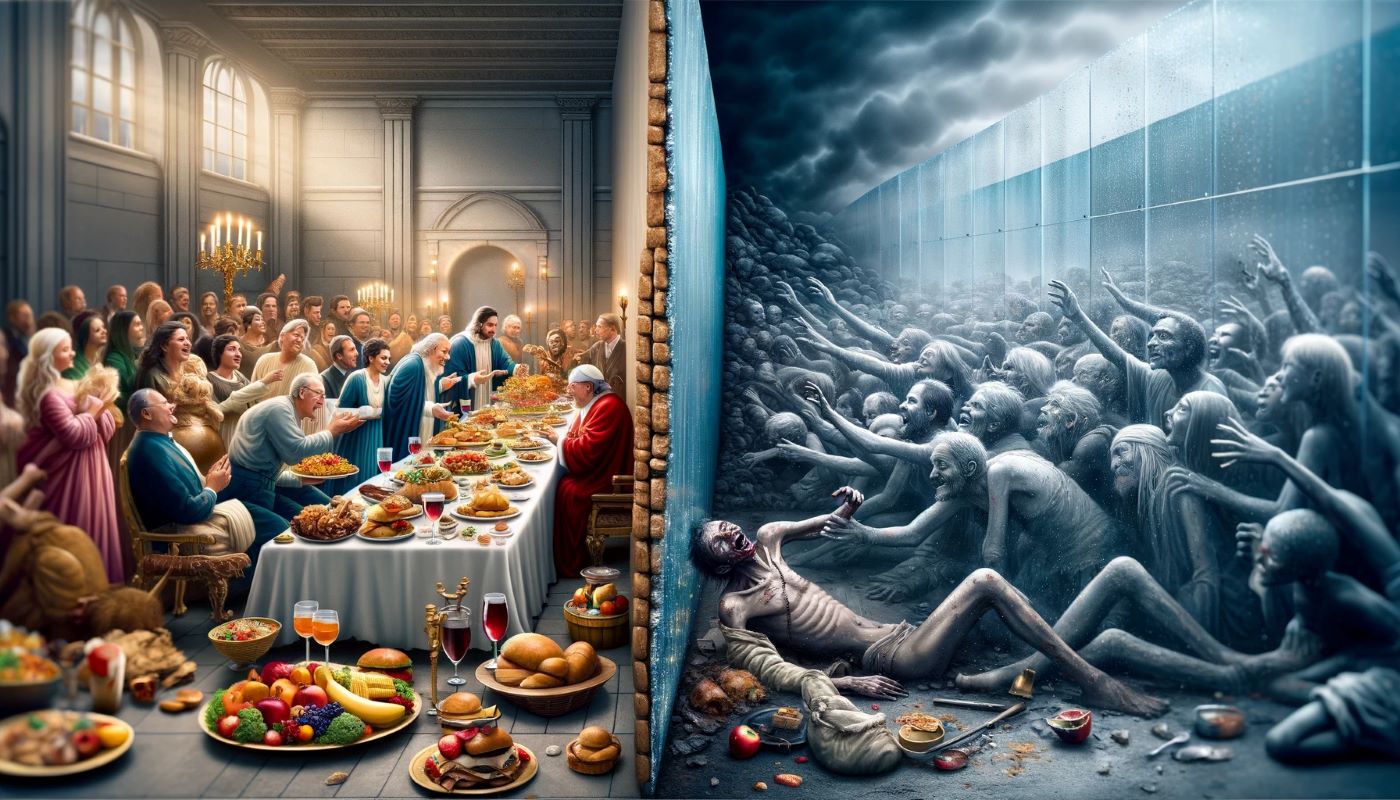Home>Theology and Spirituality>How Did Lucifer Fall From Grace


Theology and Spirituality
How Did Lucifer Fall From Grace
Published: March 6, 2024
Jason DeRose, Managing Editor at Christian.net, uses his expertise in religion and journalism to deepen understanding of faith's societal impacts. His editorial leadership, coupled with a strong academic background, enriches the platform’s diverse content, earning him recognition in both journalism and religious circles.
Discover the theological perspective on Lucifer's fall from grace and its significance in spirituality. Explore the origins and implications of this pivotal event. Gain insights into theology and spirituality.
(Many of the links in this article redirect to a specific reviewed product. Your purchase of these products through affiliate links helps to generate commission for Christian.net, at no extra cost. Learn more)
Table of Contents
The Rebellion in Heaven
The rebellion in heaven is a pivotal event in religious lore, particularly in Christianity. It marks the beginning of the fall of Lucifer, who was once a high-ranking angel. According to religious texts, Lucifer's rebellion was rooted in his desire for power and authority. He sought to exalt himself above God and establish his own dominion. This act of defiance against the divine order led to a cataclysmic conflict in the celestial realm, ultimately resulting in Lucifer's expulsion from heaven. The rebellion in heaven serves as a cautionary tale, illustrating the perils of pride and the consequences of defying the will of the divine.
Read more: When Did Grace Start In The Bible
Lucifer's Pride and Ambition
Lucifer's pride and ambition were the driving forces behind his fall from grace. As a highly esteemed angel, he was adorned with beauty and wisdom, making him one of the most prominent beings in heaven. However, his unparalleled splendor led to vanity, and he became consumed by his own magnificence. His pride swelled, and he began to harbor ambitions beyond his station. Instead of humbly serving the divine will, Lucifer aspired to ascend to a position equal to or even greater than that of God. His insatiable thirst for power and adulation clouded his judgment, leading him down a treacherous path of rebellion and eventual downfall.
Lucifer's pride and ambition serve as a cautionary tale, warning against the perils of unchecked hubris and the dangers of craving supremacy. It underscores the significance of humility and obedience, emphasizing the detrimental consequences of allowing pride to corrupt one's heart. The narrative of Lucifer's pride and ambition resonates as a timeless reminder of the inherent fragility of the human spirit and the necessity of remaining steadfast in virtue.
The War in Heaven
The War in Heaven is a climactic event depicted in religious texts, symbolizing the cosmic struggle between good and evil. It portrays the celestial battleground where the forces of righteousness clashed with the rebellious cohorts led by Lucifer. The conflict reverberated throughout the heavenly realms, engulfing the angelic host in a tumultuous upheaval. The War in Heaven serves as a profound allegory, illustrating the eternal struggle between light and darkness, virtue and vice. It embodies the timeless theme of cosmic conflict, portraying the enduring battle between the forces of righteousness and the agents of rebellion.
The War in Heaven unfolds as a monumental clash of ideologies, with the celestial hierarchy divided between unwavering allegiance to the divine and the insidious allure of Lucifer's sedition. The conflict escalates into a cataclysmic confrontation, as the angelic legions loyal to God confront the defiant insurrection led by Lucifer. The celestial battleground becomes a theater of divine justice, where the fate of the rebellious angels is sealed through their defiance. The War in Heaven epitomizes the cosmic struggle between the forces of good and evil, serving as a timeless testament to the consequences of rebellion against the divine order.
The War in Heaven resonates as a profound narrative, encapsulating the enduring theme of cosmic conflict and the triumph of righteousness over iniquity. It symbolizes the eternal struggle between the forces of light and darkness, portraying the celestial battleground as a crucible of divine justice. The conflict serves as a poignant reminder of the consequences of defying the divine will, illustrating the inexorable victory of righteousness and the inevitable downfall of rebellion. The War in Heaven stands as a testament to the enduring power of faith and the ultimate triumph of divine providence.
Lucifer's Banishment from Heaven
Lucifer's banishment from heaven represents a pivotal moment in religious lore, signifying the irrevocable consequences of his rebellion. Following the tumultuous conflict in the celestial realms, the insurrection led by Lucifer culminated in his decisive defeat. As a result of his defiance against the divine order, Lucifer faced the ultimate retribution – expulsion from the hallowed precincts of heaven. This profound act of divine judgment underscored the immutable nature of cosmic justice, illustrating the inexorable repercussions of rebellion against the divine will.
The banishment of Lucifer from heaven serves as a poignant reminder of the enduring consequences of pride and disobedience. It epitomizes the irrevocable separation from the divine presence, casting Lucifer into the abyss of exile and eternal damnation. The narrative of Lucifer's banishment from heaven resonates as a cautionary tale, emphasizing the immutable nature of divine justice and the inevitable consequences of defying the celestial order. It stands as a testament to the enduring power of righteousness and the inexorable judgment that awaits those who dare to challenge the divine sovereignty.
The banishment of Lucifer from heaven embodies the profound theme of cosmic justice, illustrating the immutable nature of divine retribution. It serves as a timeless testament to the consequences of rebellion and the enduring power of divine providence. Lucifer's banishment from heaven stands as a poignant reminder of the irrevocable consequences of defying the celestial order, underscoring the eternal separation from the divine presence and the inexorable judgment that awaits those who dare to challenge the sovereignty of the heavens.
The Consequences of Lucifer's Fall
- Lucifer's fall from grace resulted in the forfeiture of his exalted position as a cherished archangel, marking a profound descent from celestial glory to abysmal damnation.
- The consequences of Lucifer's fall reverberated throughout the cosmic realms, casting a shadow of discord and malevolence upon the pristine fabric of creation.
- Lucifer's rebellion precipitated a schism in the celestial hierarchy, leading to the estrangement of a host of angels who aligned themselves with his insurrection, thereby perpetuating the forces of darkness and spiritual turmoil.
- The repercussions of Lucifer's fall permeated the mortal realm, sowing the seeds of temptation, sin, and spiritual adversity, thereby ensnaring humanity in the perpetual struggle between virtue and vice.
- Lucifer's fall engendered a state of perpetual enmity and conflict between the forces of righteousness and the agents of rebellion, perpetuating the cosmic struggle between light and darkness.
The consequences of Lucifer's fall serve as a poignant reminder of the enduring ramifications of pride, disobedience, and spiritual rebellion. It stands as a testament to the immutable nature of divine justice and the inexorable repercussions of defying the celestial order.















